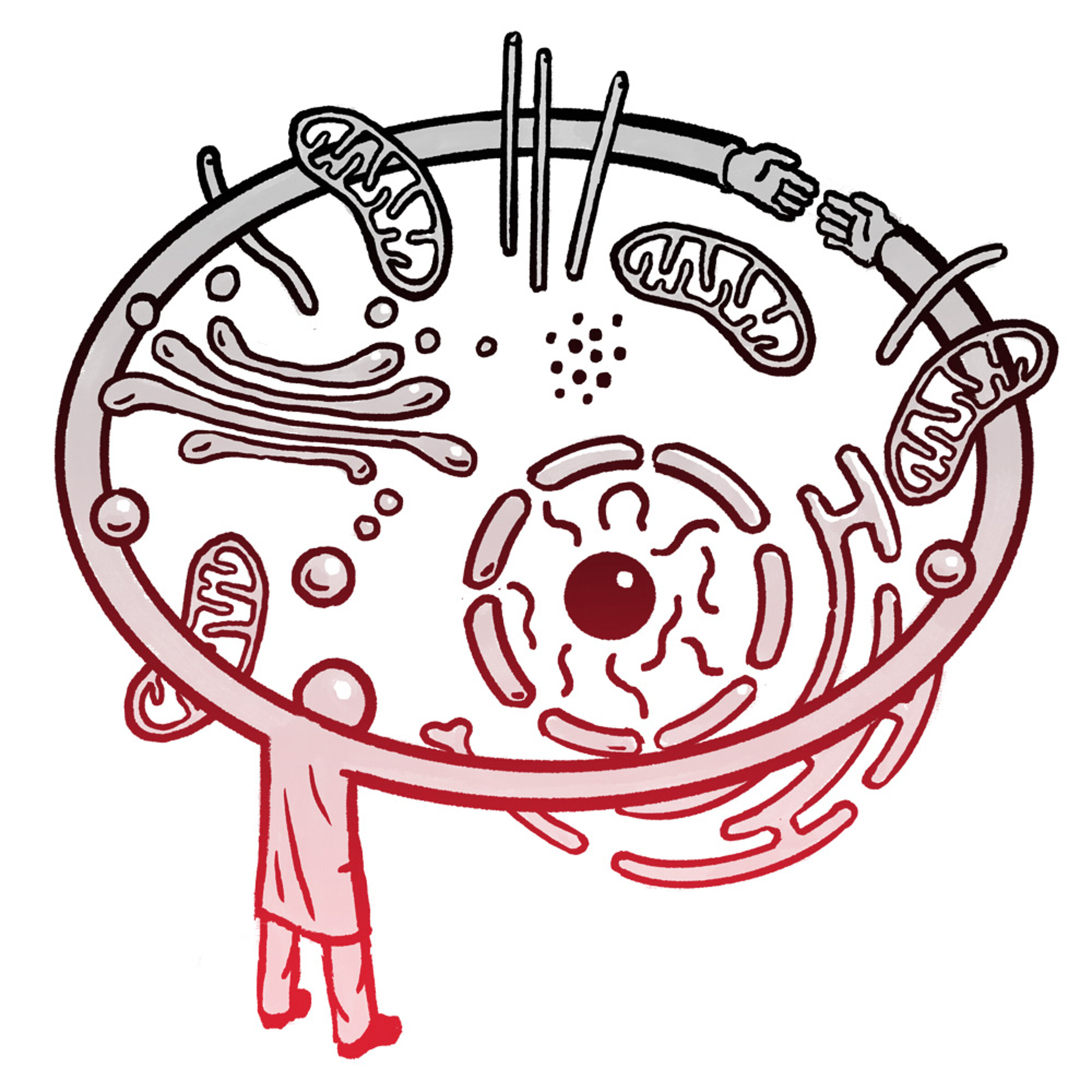Typically, when people develop cancer and get treated, the cancer comes back. They then get treated again – and the cancer comes back again. This is terrible. The cancer cells evolve by mutating and evading the cancer therapies. We block one door with a drug and the cancer goes through a labyrinth to find another exit door and grows again.
We are striving to find out how the cancer cells find these exit doors. Our aim is to treat cancer with combinations of drugs so that all potential exit doors are shut from the very beginning, and the cancer has no chance to return.
We cannot afford to be myopic in this struggle. Instead of looking in one place only, we observe the whole cancer cell and study its properties comprehensively. This is called systems biology. It is like wearing a pair of multifocal glasses. This multifocal view has become possible with new kinds of measurements on a single-cell level that allow us to look at almost everything within a cell, including the genome, the proteome, and the entirety of its proteins. This means the amount of useful data available has increased 1000-fold.
Here in Berlin, together with Nils Blüthgen, we have developed the new field of “perturbation biology”, in which we perturb cancer cells with a drug or by changing a gene, and then watch the molecular responses and how the cells behave. Do they grow? Do they die? Do they metastasize in another part of the body? We do these kinds of experiments a thousand times in tissue samples of individual patients and organoids, which enables us to generate a lot of data. Powerful methods of machine learning and artificial intelligence help us to explain what we are measuring and to build computational models that allow us to predict the reactions of cells to perturbations. We can use all this wonderful data to identify potential exits doors for a specific cancer and to predict which combinations of drugs can block them effectively.
We are starting with colorectal cancer and ovarian cancer. Once we have some results, we will work with Charité Berlin and hospitals in Boston to turn this into clinical trials so that new combined therapies can be tried out and ultimately help patients.
I have always been optimistic. I believe that science is not about the discovery of natural laws, but is about making models of the world so that we can operate in it successfully. As scientists, we have to work hard to protect and improve life. We need to prevent catastrophes like climate change that can disrupt life on the planet. But we also need to ensure that life can continue in a positive way. For a human being, this means avoiding dying of cancer or having to suffer from it. For humanity as a whole, it can mean steering the evolution of life and technology in a positive way. Both are possible through developing effective models of the world, which allow us to describe and predict it, and then to intervene. I believe that our ability to change the world is a reason for optimism.


